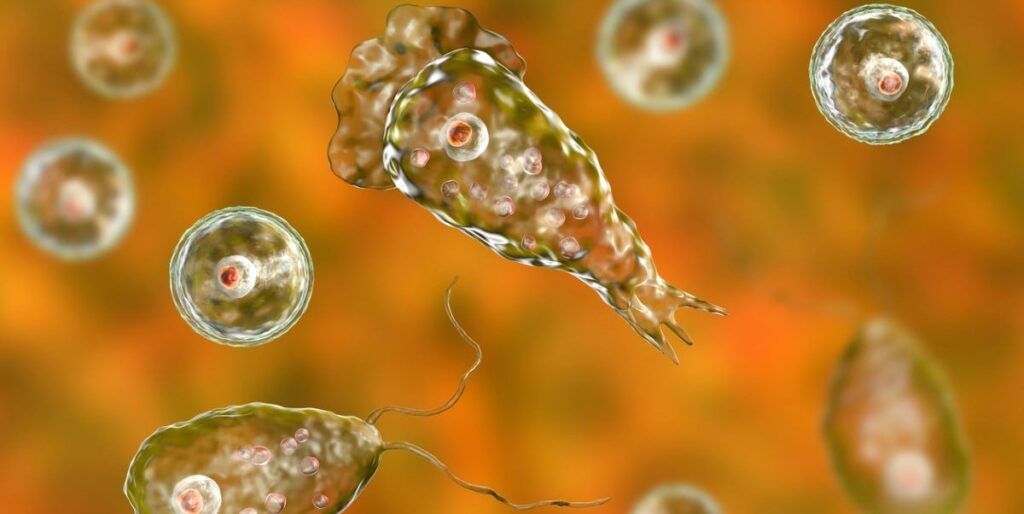
A 14-year-old boy named Mridul has succumbed to a rare and deadly brain infection caused by the Naegleria fowleri amoeba, as reported by news agency PTI. Mridul contracted the infection after swimming in a contaminated pond. This marks the third fatality in Kerala due to this infection since May 21.
Naegleria fowleri, commonly known as the “brain-eating amoeba,” is a microscopic organism found in warm freshwater environments such as lakes, ponds, rivers, hot springs, as well as soil and untreated water. The amoeba enters the human body through the nose during water activities, travels to the brain, and causes a severe infection called primary amebic meningoencephalitis (PAM).
The infection is extremely aggressive and often fatal. Symptoms include headache, fever, nausea, vomiting, and changes in mental state. Most infected individuals fall into a coma and die within five days of symptom onset, with death occurring within one to 18 days.
The recent cases in Kerala began with the death of a 5-year-old girl from Malappuram on May 21, followed by the demise of a 13-year-old girl from Kannur on June 25. Health authorities are urging the public to take precautions to prevent further infections.
According to the Cleveland Clinic and the Centers for Disease Control and Prevention (CDC), the following steps can help prevent Naegleria fowleri infections:
- Avoid Water Activities During High-Risk Conditions: Steer clear of swimming or diving in warm freshwater during the hotter months when water temperatures are high and water levels are low.
- Use Protective Gear: Use a nose clip or hold your nose shut when jumping or diving into water.
- Keep Your Head Above Water: Avoid submerging your head in hot springs and other naturally hot (geothermal) waters.
- Avoid Disturbing Sediment: Do not disturb sediment in shallow, warm freshwater bodies, as the amoeba is more likely to be found in the sediment.
- Safe Nasal Irrigation: Boil tap water for one minute and let it cool before using it for nasal irrigation with neti pots, bulb syringes, squeeze bottles, and other nasal devices. Alternatively, use distilled, sterile, or filtered water.
Currently, there are no known effective treatments for PAM. Doctors employ a combination of drugs, including amphotericin B, azithromycin, fluconazole, rifampin, miltefosine, and dexamethasone, to manage the disease. However, the prognosis remains poor, with most cases resulting in death.
Sources By Agencies


